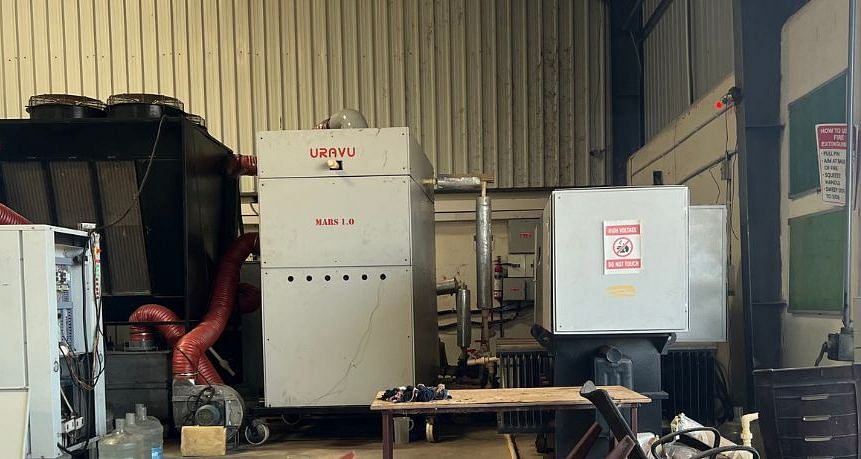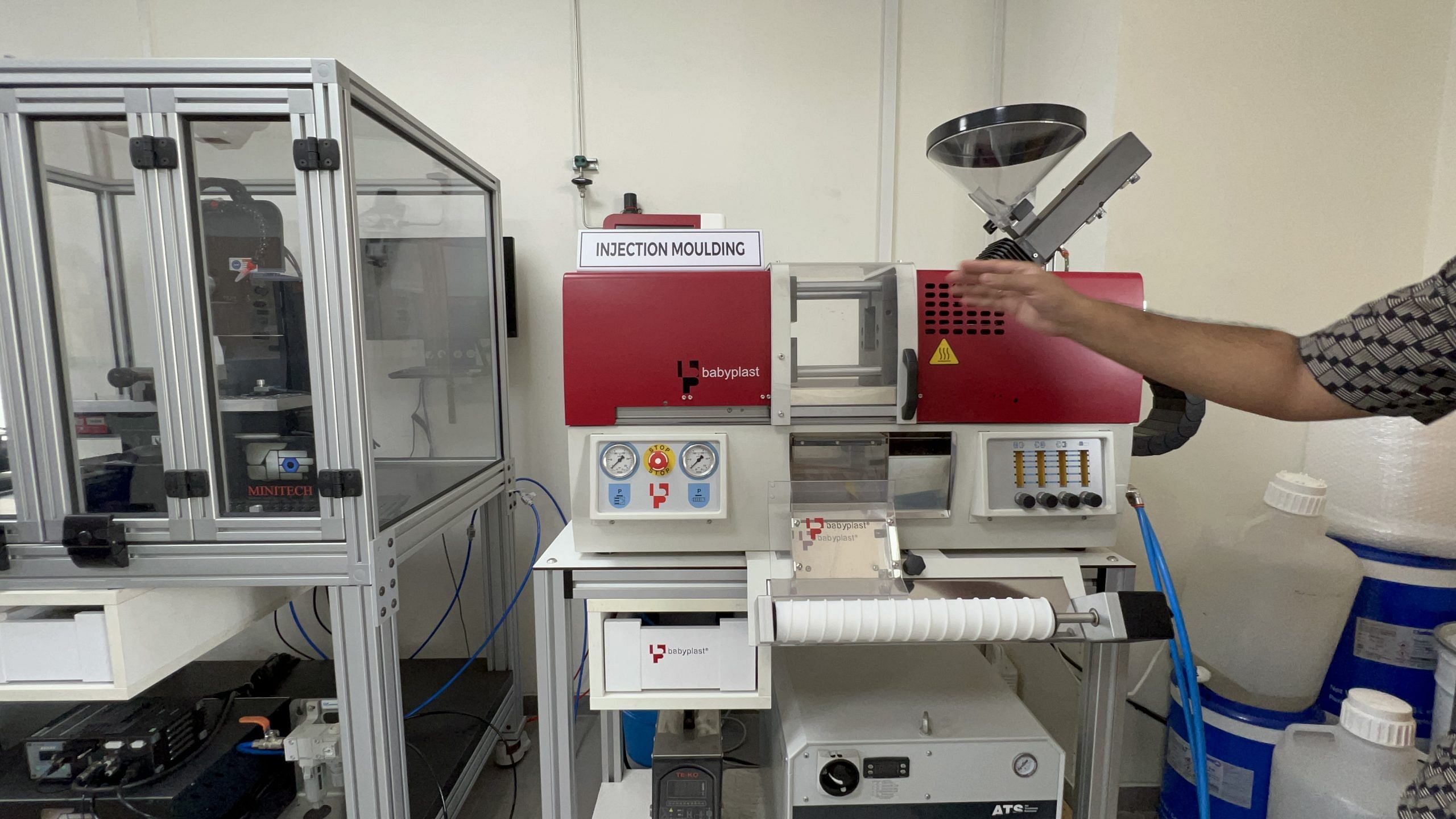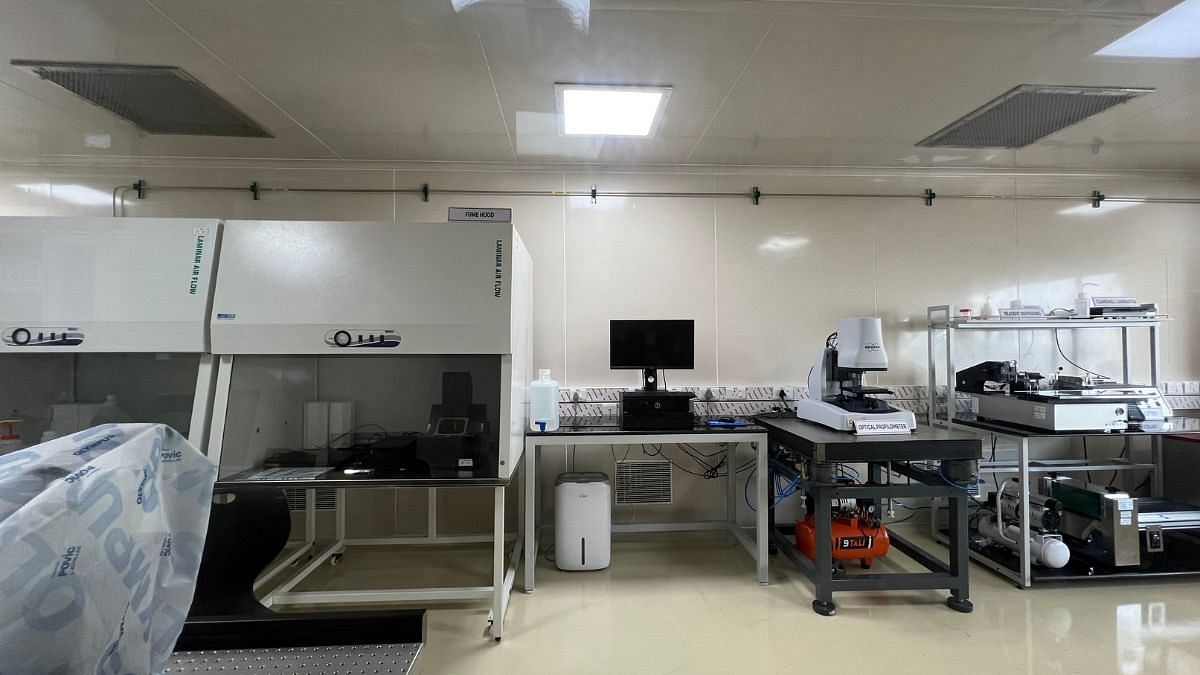
Portable MRI, water from air—Indian deep tech startups thriving with incubators, govt funding
These improvements are the results of the intersection of academia, entrepreneurship, and authorities funding.
Deep science and deep tech have connotations of massive knowledge, quantum mechanics, synthetic intelligence, and different such near-futuristic concepts. However many startups additionally work in labs just like these present in educational institutes, to develop new purposes for know-how to fulfil a necessity. In India, bolstered by incubators in addition to funding from the federal government and personal sectors, deep tech startups are additionally growing biomedical gadgets, sustainable eco-friendly power and agricultural options.

Incubators, just like the Middle for Mobile and Molecular Platforms (C-CAMP) with 4 flooring of biology labs, are powerhouses. The occupants are all entrepreneurs from varied startups that C-CAMP helps by giving them entry to specialists, services, and steerage they require.
“To work in deep science and tech, we should create a full stack ecosystem, which successfully takes an innovation from, say, a lab in IIT-Madras, to a group, like farmers in UP. Incubators play a giant position in that. We additionally construct accelerators, funding engines, and deployment engines,” says Manoj Kumar, founding father of the incubator Social Alpha based mostly out of Bengaluru.
In India, bolstered by incubators in addition to funding from the federal government and personal sectors, deep tech startups are additionally growing biomedical gadgets, sustainable eco-friendly power and agricultural options.
Additionally learn: IISc deep tech startups are pushing India into elite league. Child companies with large ambitions
Tapping the incubator community
Voxelgrids with its transportable MRI machines was the very first startup to be incubated at Social Alpha, funded by the Tata Trusts’ Basis for Innovation and Social Entrepreneurship.
“After I got here again to India after finding out MR physics overseas, I realised there may be truly no scanner obtainable for us to entry as engineers. I wished to construct one thing that has a worth proposition of its personal,” says Voxelgrids founder-CEO Arjun Arunachalam. The light-weight MRI scanners, being examined since 2018, had been licensed final 12 months. Now, these machines will roll out to healthcare services, beginning with the Tata Most cancers Basis.
Their foremost supply of magic is the extra inexpensive liquid nitrogen for cooling as an alternative of the costly and uncommon liquid helium utilized in conventional scanners. And Social Alpha performed a key position in enabling their transition from an concept to a business product.
Incubators like C-CAMP and Social Alpha straddle each {the marketplace} and academia offering startups entry to each ends of the spectrum, and the whole lot in between. They supply the infrastructure required to develop, take a look at, and promote a brand new product, and assist firms avail plenty of grants and monetary help.

At C-CAMP, past the RT-PCR machines, the protein filtration tools, and a complete host of different very particular devices, is the manufacturing lab. Almost 65 firms have used this facility to make their prototypes on a 3D printer, a vacuum casting machine or an injection moulding machine, relying on amount. A large machine known as a CNC micro-milling machine etches micro-tubes that appear like tiny circuits onto biocompatible materials that goes into the human physique.
“We now have labored with over 95 startups, 2,000 researchers, and produced 250 publications,” says Taslimarif Saiyed, CEO and director of C-CAMP.
More and more, folks inside academia are placing on their entrepreneurial hats—it’s not unusual to see college students construct and roll out merchandise to the market even earlier than they graduate.
Incubators like C-CAMP and Social Alpha straddle each {the marketplace} and academia offering startups entry to each ends of the spectrum, and the whole lot in between.
Blackfrog Applied sciences contributed considerably to distributing Covid-19 vaccine vials via its battery-operated transportable fridge, which is smaller than a backpack. The modern chilly storage helped save hundreds of vaccine doses from going to waste and was used to ship not less than 2,00,000 doses in distant places, particularly within the northeastern states.
“We had been incubated first at Manipal College, the place our R&D journey started in designing and testing medical gadgets,” says Blackfrog founder, Mayur Shetty. After six and a half years of design, improvement and testing, he began tapping into the incubator community.
Blackfrog raised its first spherical of seed funding whereas incubated with Pune-based Enterprise Centre, an impartial sub-campus hosted by CSIR-Nationwide Chemical Laboratory (NCL). Later, the startup additionally labored with Social Alpha and C-CAMP.

However past services lies funding.
And invariably, such startups depend on grants, a majority of which come from the central authorities. It has invested closely in deep tech startups over the previous eight years via the Biotechnology Business Analysis Help Council (BIRAC)—the Division of Biotechnology’s industry-academia interface.
Additionally learn: Bengaluru museum is making science artsy, buzzy. And it gained’t cease altering
The most important funder
Arun Janitri researched being pregnant and new child monitoring gadgets for 5 years and labored with gynaecological and neonatal specialists to grasp a fundamental query: Why achieve this many moms and infants die throughout childbirth?
“We found that the hole was the dearth of monitoring vital vitals and early decision-making. With assist from BIRAC, we labored on fixing this downside,” he says.
In 2021, he deployed his easy-to-use being pregnant and foetal monitoring system and software program, via his startup, Janitri.
Based in 2016, the startup—which bagged Rs 1 crore from a Shark Tank India look—focuses on what is named 1,000 days of being pregnant: from conception to the kid reaching two years of age. The wearable gadgets, which monitor the vitals of each the mom and the infant, have been utilized in hospitals throughout the nation, particularly in tie-ups with state governments, similar to these of Karnataka, Maharashtra, Rajasthan, Haryana, Bihar, Manipur, Meghalaya, and Arunachal Pradesh
In the present day, Janitri exports its gadgets to nations like Bangladesh, Sierra Leone in West Africa, and Southeast Asian nations. It began with its first grant from BIRAC.
Almost all startups, sooner or later, avail of BIRAC grants. Since its inception in 2012, it has given a leg-up to as many as 2,000 firms. These grants will be as much as Rs 50 lakhs for 18 months. Over Rs 299 crore has been invested in biotech startups alone.
Startups depend on grants, a majority of which come from the central authorities. It has invested closely in deep tech startups via the Biotechnology Business Analysis Help Council (BIRAC).
“There are firms which might be reviving folks remotely with handheld gadgets or monitoring most cancers sufferers’ vitals via their mattresses,” says Satya Sprint, former founding head of technique at BIRAC. “If there are answers being designed for issues via deep science and deep tech, it sometimes has international resonance and may have the ability to scale up via a panorama of regulation.”
Sprint says that innovation in deep science will be inspired in two methods: a push within the type of funding or a pull within the type of market creation. Just like the Division of Science and Expertise, NITI Aayog and Division of Biotechnology, BIRAC’s focus is on the push for innovation. Incubators and startups are powered by the federal government’s sturdy push for the Make in India initiative.
Many firms, particularly those that need to function exterior cities, tie up with state governments and different public businesses. Blackfrog, as an illustration, labored with state governments and improvement businesses through the Covid-19 pandemic to assist them purchase fridges.
If there are answers being designed for issues via deep science and deep tech, it sometimes has international resonance and may have the ability to scale up via a panorama of regulation.
– Satya Sprint, former founding head of technique at BIRAC
“Our items get built-in into the general public well being system throughout the nation,” says Shetty. “The general public sector is essential to the event of deep tech in India.”
Medical gadgets and agri-tech
In Koramangala, Bengaluru, one other incubator IKP-Eden is fitted with cutting-edge medical workshops and labs to provide a leg-up to startups which might be related to life sciences, medical gadgets, and generally, agri tech.
“We had been one of many earliest to start out, in about 2008, and had been the primary to participate within the Invoice and Melinda Gates Basis Grant Challenges,” says Sridhar Ramanathan, CEO of IKP EDEN.
It’s the place oncologist Dr Pawan Mehrotra developed the Poorti Package—an inexpensive silicone breast prosthesis and equipment. He observed that in lots of rural hospitals, breast most cancers sufferers would generally include their saris draped on the alternative shoulder. He realised they had been doing it to cowl up post-mastectomy and determined to work in affected person rehabilitation. As managing director of the startup Aarna Biomed, he and his staff developed the Poorti package, which sells for Rs 4,000 and is in use immediately in 14 states together with Tamil Nadu, Bihar, West Bengal, and Maharashtra. The waterproof package comes with a pre-made exterior silicone breast prosthesis, two pocketed brassieres, and two prosthesis covers.
The general public sector is essential to the event of deep tech in India.
– Mayur Shetty, founder, Blackfrog
Local weather and sustainability are different areas the place firms are innovating at a really quick tempo, primarily in exploring various sources of power.
“Our biogas grid in a village close to Varanasi is the primary biogas one in India and one of many largest energy grids,” says Harshad Kulkarni, CEO & co-founder of Saaf Biogas. The corporate has gained inexperienced awards for his or her pioneering ‘clear cooking’ group community, and like most different deep tech firms, has been recognised and supported by the federal government.
The blink-and-miss tempo of tech innovation has been recognised by incubators, who’re themselves quickly evolving to maintain up with it.

“Considered one of our USPs is that we do spinoff applied sciences from nationwide labs. We now have about 11 firms which might be spin-offs of guardian firms or analysis from nationwide CSIR labs,” says Premanth Venugopalan who heads Enterprise Centre and can be the chief scientist at NCL.
Additionally learn: Indian science communicators are preventing for freedom from jargon. Scientists push again
The uncommon success story
Behind each success story, there are 100 failures. In deep tech, the turnaround time is so excessive that your entire market generally modifications earlier than a prototype is developed. Nascent firms can take a number of years to realize optimistic money stream.
“Within the West, good concepts and college students come out of academia and collaborate with professors to construct experience and go from there. In India it’s the opposite manner round; the federal government and academia had been reactive to younger folks proactively coming via with options for tough issues as an alternative of constructing programs from the bottom up,” says Voxelgrids’ Arunanachalam.
The long-term requirement of funds continues to be the most important problem for the deep tech ecosystem in India. That is sophisticated by the truth that companies are inclined to work in silos, identical to academia does, leaving the incubators to endure.
In contrast to startups in a market just like the US that pulls non-public buyers, Indian firms like us must first promote to the federal government and CSR, who take years to purchase and take a look at merchandise
– Swapnil Shrivastav, co-founder and CEO of Uravu Labs
Uravu Labs is among the success tales. For the final 15 months, via solar-powered machines like Tatooine, it has been filling 2,000-litre tanks with clear water pulled from air. The saved water will get bottled and delivered to motels and eating places within the metropolis, prospects don’t know that they’re consuming water of such pure high quality that minerals must be added again into it to stay to WHO tips.
In your entire course of, there may be minimal wastage of warmth—the machines have been constructed particularly to reuse a separate stream of water by biking it via evaporation and condensation repeatedly. The supply of power for the machines is generally photo voltaic, however sometimes waste warmth from industries or biomass waste can be used.
Uravu’s water bottles are purchased by companies for Rs 4 per litre. Co-founder Shrivastav needs to make this inexpensive know-how ubiquitous, particularly in villages.
Again in 2017 after they had been beginning out, the Uravu staff was assured they might progress and scale up shortly, but it surely was nonetheless a wrestle.

“In contrast to startups in a market just like the US that pulls non-public buyers, Indian firms like us must first promote to the federal government and CSR, who take years to purchase and take a look at merchandise,” says Shrivastav. “Within the face of accelerating droughts, heatwaves, and water desk depletion, we have to be proactive as an alternative of reactive in the direction of deep tech.”
(Edited by Theres Sudeep)

